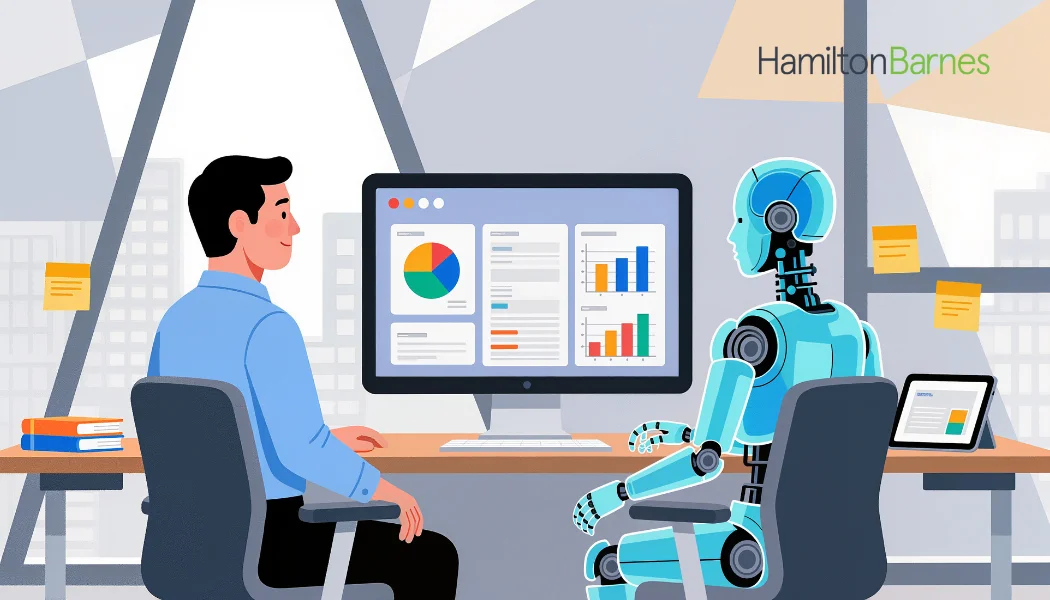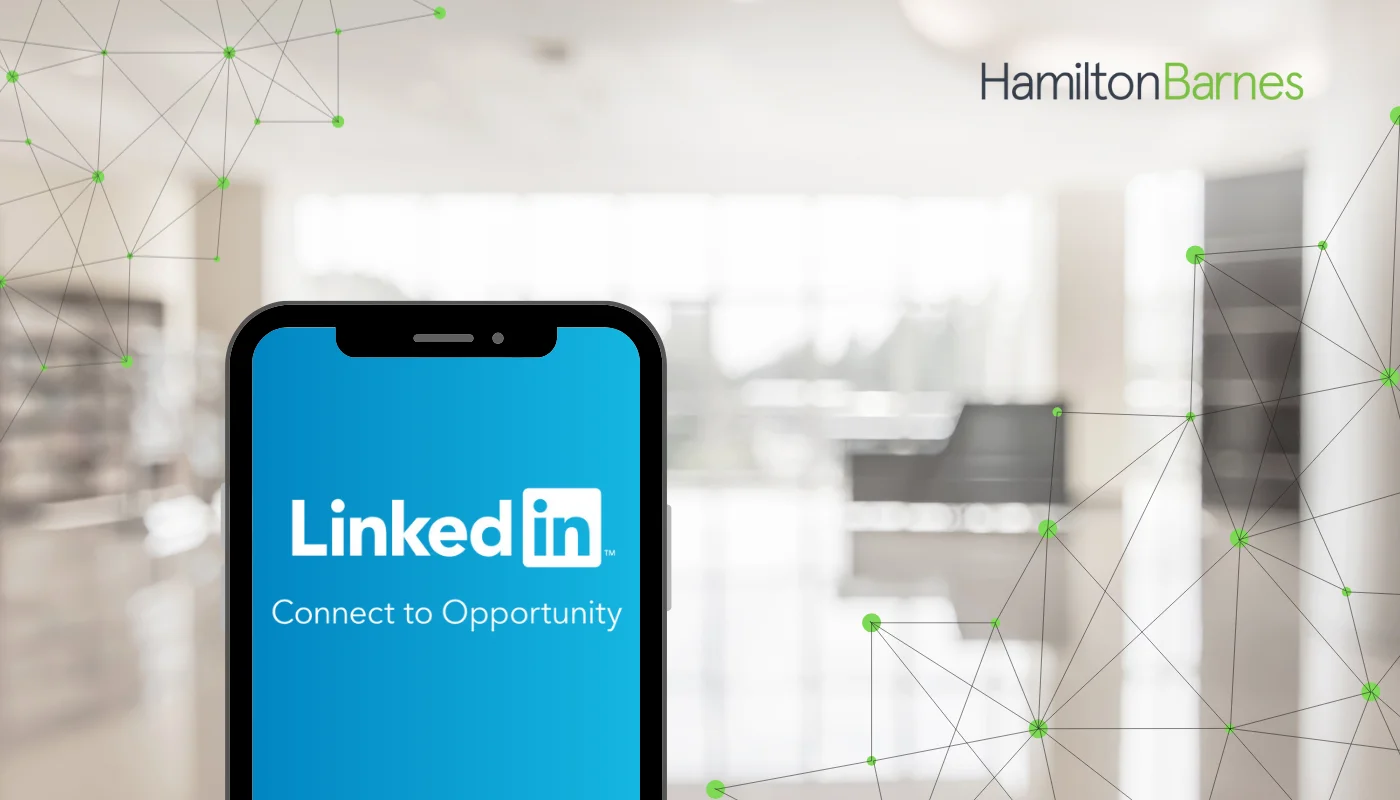How to Use AI in Your Job Search (Without Losing Your Authenticity)
20 Nov, 20258 minutes
How to Use AI in Your Job Search (Without Losing Your Authenticity)
AI is no longer something happening on the sidelines; it’s woven into the industry you’re entering. Some people worry it’s taking jobs. Others feel excited about what it can open up. The truth sits somewhere in the middle. It will replace certain tasks. It will also create new roles, new specialisms, and new ways of working.
For future network engineers, this isn’t a threat. It’s an advantage.
AI can support you throughout your job search, your interview prep, your learning, and your professional development. But only if you use it in the right way. The aim isn’t to hand everything over to AI. The aim is to let it guide, strengthen, and simplify the work you’re already doing.
And the more you use it, the more you understand where it helps - and where it gets in the way.
Using AI Without Losing Yourself
Let’s get this out of the way: AI won’t make you sound like a better version of yourself unless you stay involved. The moment you let it take full control, your tone disappears. Everything becomes too neatly phrased, too smooth, too “professional” in a way that doesn’t feel human.
Recruiters can sense when an application has been produced by a model rather than a person. They’re not against AI. They just want to read something genuine.
So when you use AI, start with your own thoughts. Feed it your ideas. Ask for help shaping or clarifying things. Then review what it gives you, rewrite the parts that don’t represent you, and adjust the language until it sounds natural again. Your honesty and voice matter more than anything else.
How AI Can Support Your Job Search
Improving Your CV with Clarity and Confidence
A blank page is one of the biggest barriers for students and graduates. AI can get you past that. It can help you structure your CV, tidy your wording, highlight strengths you might have overlooked, and tailor your application to a specific role.
But AI doesn’t know your experience better than you do. If it starts introducing responsibilities or achievements that don’t sound right, remove them. Keep the content grounded in what you’ve actually done.
A good test is to read each paragraph aloud. If you feel yourself thinking, “That doesn’t sound like something I’d ever write,” change it.
Preparing for Interviews Without Overwhelm
Interviews can feel intimidating, especially early in your career. AI can take away some of the pressure by giving you practice questions and helping you understand what the employer is assessing.
One of the most valuable things you can do is feed in your own answers. You can paste in what you plan to say, and AI will analyse it, point out where you’re drifting, suggest ways to make your point clearer, and pick up on things you may not realise you’re doing.
You can keep refining your answers until you feel confident explaining your experience in a way that feels natural. The aim isn’t to memorise a script. It’s to practise speaking clearly, calmly, and authentically about your skills.
Researching Employers Without Getting Lost in Tabs
Before an interview, you want to understand the organisation - what it does, what problems it solves, and what part of the industry it operates within. AI can turn hours of scattered research into a focused, digestible starting point.
It can summarise recent news, technology choices, partnerships, or any industry shifts that might affect the employer. Use this information to guide deeper research rather than replace it. The more specific your understanding, the stronger your conversation will be.
Writing Messages, Outreach, and Cover Letters with Less Stress
Writing about yourself is difficult. Most people either undersell what they can do or try so hard to sound professional that the result feels stiff.
AI can help you find the middle ground. You can ask for a structure, an opening line, or a clearer way to explain what you’re looking for. But you still need to rewrite the final version in your tone. Recruiters don’t want a polished press release. They want clarity and honesty.
If a sentence feels overly dramatic or too formal, strip it back. For additional support, check out our CV writing tips training.
Accelerating Your Learning and Filling Knowledge Gaps
AI is also a strong learning companion. If you’re tackling certification content, revising something you’ve not seen in a while, or trying to understand a topic in simpler terms, you can ask AI to break it down step by step.
You can ask it to quiz you. You can ask for analogies. You can ask it to simplify a complex protocol. You can ask for a comparison between two technologies. This alone can speed up your learning far more than trying to interpret ten different explanations from ten different websites.
Use it like a tutor that’s available at any time, with unlimited patience.
How Recruiters Instantly Spot “ChatGPT Writing”
People who review applications every day develop a sharp eye for patterns, and AI has very recognisable habits once you know what to look for.
One of the clearest signs is the structure. AI tends to create neatly balanced sentences that flow almost too cleanly. Another tell is punctuation. ChatGPT often uses long em dashes — these ones — instead of the simple hyphens or full stops most people naturally reach for. Recruiters notice this straight away because it shows up repeatedly in AI-produced documents.
Word choice is another strong giveaway. There are certain adjectives and verbs that appear far more often in AI-generated writing than in genuine graduate applications. For example:
- dynamic
- comprehensive
- holistic
- leveraged
- optimised
- innovative
- robust
- seamless
- stakeholder-focused
- scalable
- end-to-end
On their own, these words aren’t “bad”. The problem is when they appear everywhere, in place of clear, specific descriptions of what you actually did.
You’ll also see a slightly theatrical, over-polished tone in AI writing. Sentences land a bit too evenly. Ideas are wrapped up a little too perfectly. It sounds tidy, but not like a real person.
The best way to avoid all of this is simple: edit. Change the punctuation. Shorten the sentences. Replace the language you would never use in conversation. Add back the human bits - the natural phrasing, the small imperfections, the personality. That’s what makes your application believable.
The Future Belongs to Those Who Adapt
AI isn’t going to remove the need for network engineers. It may change the tasks you focus on. It may shift some responsibilities toward automation or smarter monitoring. But it won’t erase the need for skilled professionals.
What it will do is reward the people who combine technical ability with curiosity and adaptability. Using AI during your job search gives you experience with tools that are already influencing the industry. It builds confidence. It speeds up learning. It helps you communicate your strengths in a clearer way.
Your story, your capability, and your ambition still matter more than any tool you use. AI simply helps you express them with more clarity.
FAQ: Using AI in Your Job Search
Is it acceptable to use AI for my CV or interview preparation?
Yes, as long as the final content is yours. AI is there to assist, not replace your voice.
Can employers tell if I used AI?
They often can, especially if the writing feels overly formal, vague, or packed with unnatural phrasing. Editing is your safety net.
How do I keep my writing authentic?
Start with your own ideas. Use AI to improve clarity. Then rewrite the output until it sounds like you, not a template.
Should I tell an employer I used AI?
There’s no requirement. What matters is honesty in your content and accuracy in the way you describe your experience.
What’s the real benefit of using AI in my job search?
It reduces stress, helps you prepare more effectively, and supports your learning. It gives you structure at moments when everything feels overwhelming.
We Are Here to Help
If you’re reading this and feel like you could use a bit of guidance with any part of your job search, whether that’s sorting your CV, preparing for interviews, understanding the market, or figuring out your next step - you don’t have to do it alone. We work with graduates every day and can help you navigate the process with clarity and confidence.
If you’d like support, get in touch with the team at Hamilton Barnes. We’re here to help you take your first step into the industry with the right preparation behind you.




